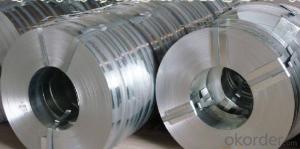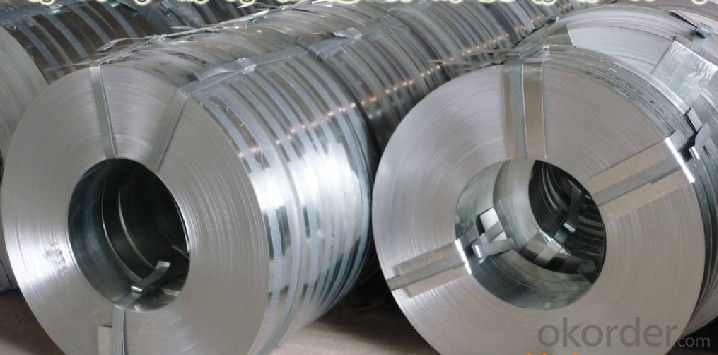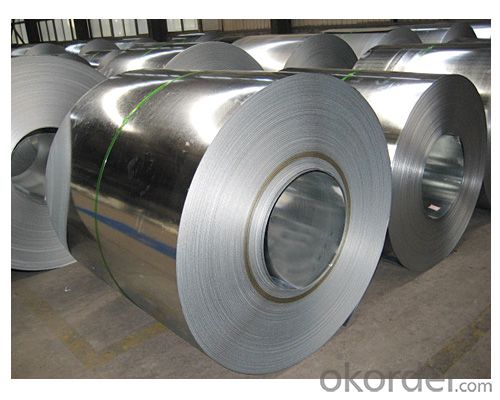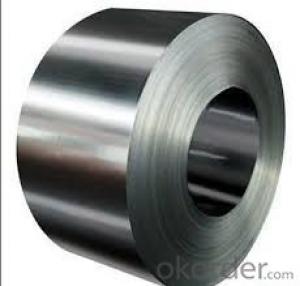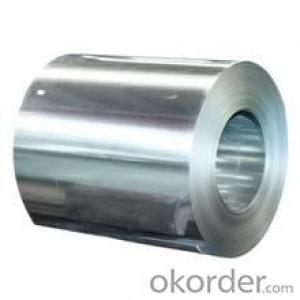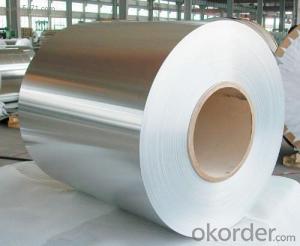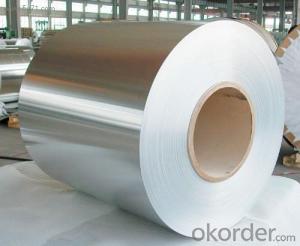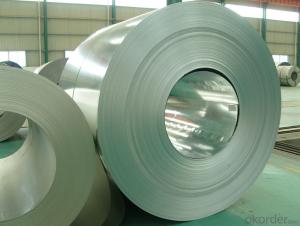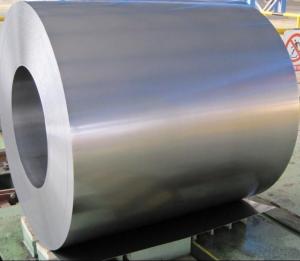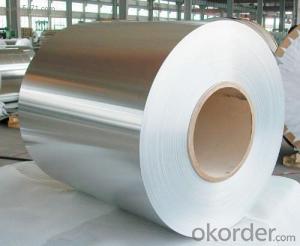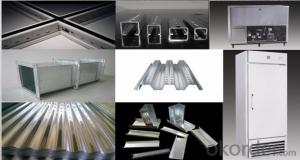Hot-dip Zinc Coating Steel Building Roof Walls Good Visual Effect
- Loading Port:
- China main port
- Payment Terms:
- TT OR LC
- Min Order Qty:
- 50 m.t.
- Supply Capability:
- 10000 m.t./month
OKorder Service Pledge
OKorder Financial Service
You Might Also Like
Hot-dip Zinc Coating Steel Building Roof Walls Good Visual Effect
1.Hot-Dip Galvanized Steel Sheet Description:
Hot-dip galvanized steel coils are available with a pure zinc coating through the hot-dip galvanizing process.The hot-dip process is the process by which steel gets coated in layers of zinc to protect against rust. It is especially useful for countless outdoor and industrial applications. Production of cold formed corrugated sheets and profiles for roofing, cladding, decking, tiles, sandwich walls, rainwater protective systems, air conditioning duct 。
2.Main Features :
• Excellent process capability
• Smooth and flat surface
• Workability, durability
• Excellent anticorrosive property
• High strength
3.Hot-Dip Galvanized Steel Sheet Images
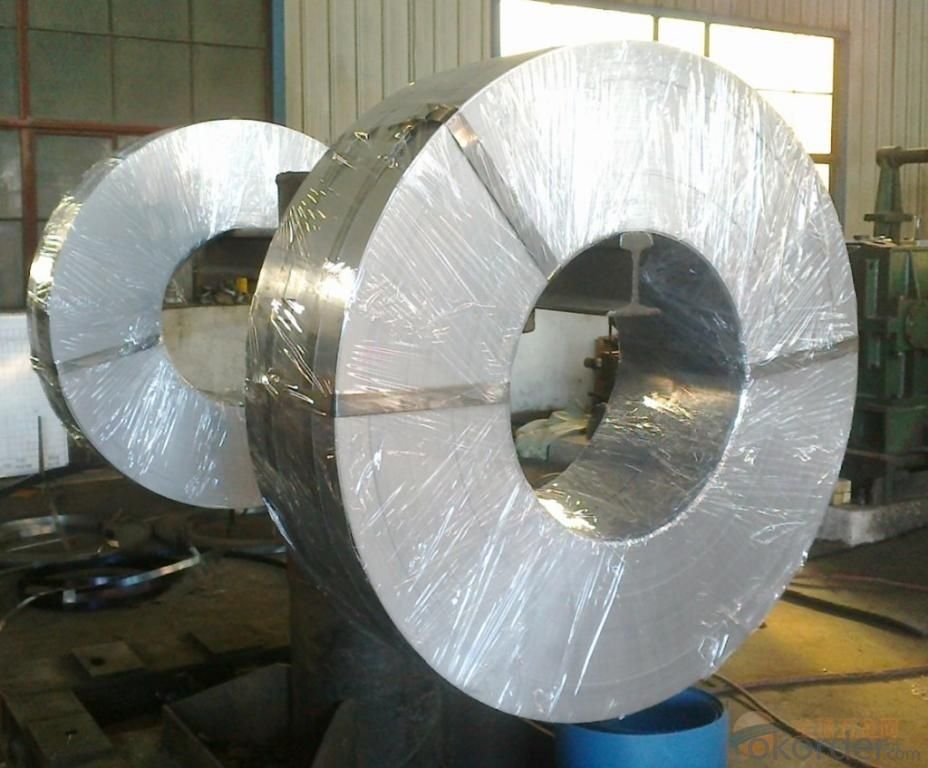
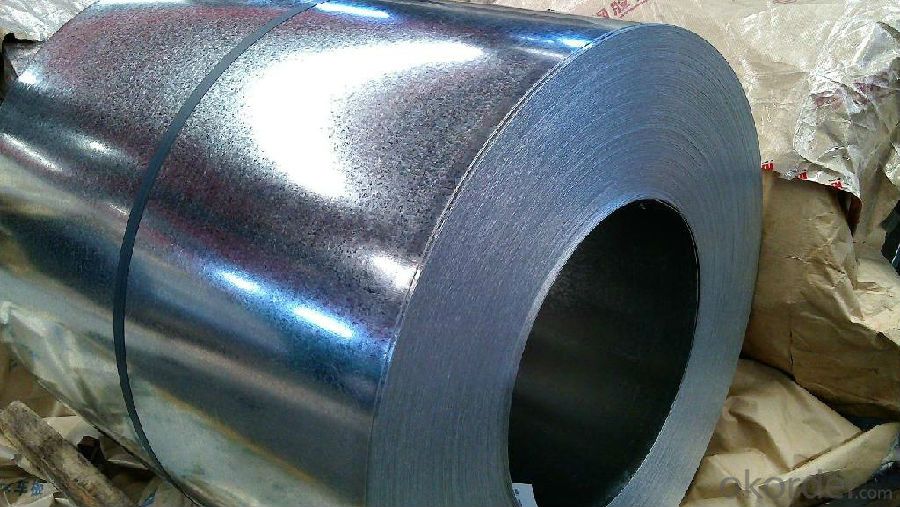
4.Hot-Dip Galvanized Steel Sheet Specification
Standard: ASTM, JIS,EN
Grade: CS, DX51D+Z,SGCC, SS 230~550,S220GD+Z~S550GD+Z, SGC340~SGC570
Thickness: 0.18mm~5mm
Width: max 2000mm
Coil weight:3-12 MT
Surface structure: zero spangle, regular spangle or minimum spangle
Surface treatment: Chromate treatment, Oiled/dry, skinpassed/non-skinpassed
Packing: Standard seaworthy export package
5.FAQ of Hot-Dip Galvanized Steel Sheet
We have organized several common questions for our clients,may help you sincerely:
1.How to guarantee the quality of the products?
We have established the international advanced quality management system,every link from raw material to final product we have strict quality test;We resolutely put an end to unqualified products flowing into the market. At the same time, we will provide necessary follow-up service assurance.
2. How long can we receive the product after purchase?
Usually within thirty working days after receiving buyer’s advance payment or LC. We will arrange the factory manufacturing as soon as possible. The cargo readiness usually takes 15-30 days, but the shipment will depend on the vessel situation.
- Q: What are the different types of steel processing techniques for coils?
- There are several types of steel processing techniques for coils, including hot rolling, cold rolling, annealing, pickling, and galvanizing.
- Q: What is the standard width of steel coils?
- Depending on the industry and application, the width of steel coils can differ. Generally, steel coils have a standard width range of 36 to 72 inches. The actual width is influenced by various factors including the type of steel, intended use, and the machinery involved in processing and handling the coils. To ensure the appropriate width for a specific steel coil application, it is crucial to refer to industry standards and specifications.
- Q: How long do steel coils typically last?
- The durability of steel coils is known to last for decades, as it is influenced by various factors including the quality of the steel, maintenance and care, as well as the specific application they are used for. The design of steel coils is generally focused on ensuring longevity by being resistant to corrosion. When properly cared for, regularly maintained, and used within recommended guidelines, steel coils can have a lifespan ranging from 20 to 50 years or more. However, external factors like exposure to harsh environments, extreme weather conditions, and the level of stress they endure can impact their longevity.
- Q: What are the main challenges in handling and processing steel coils?
- The main challenges in handling and processing steel coils include their large size and weight, the risk of damage during transportation and storage, the need for specialized equipment and facilities, ensuring proper handling to prevent injury to workers, and addressing the potential for corrosion and rust. Additionally, the variability in coil dimensions and surface conditions can pose difficulties in achieving precise and consistent processing results.
- Q: What is the weight of a typical steel coil?
- The weight of a typical steel coil can vary significantly depending on its size, thickness, and type of steel used. However, a typical steel coil can range anywhere from a few hundred kilograms to several tonnes in weight.
- Q: What is the process of galvanizing steel coils?
- The process of galvanizing steel coils involves several steps to enhance their durability and protect them from corrosion. Firstly, the steel coils are cleaned thoroughly to remove any dirt, oil, or other impurities that may be present on the surface. This is done through an acid pickling process, where the coils are immersed in a bath of diluted acid solution or treated with a chemical cleaner. This step ensures that the surface of the coils is free from any contaminants, allowing for better adhesion of the zinc coating. After the cleaning process, the coils are rinsed to remove any remaining acid or cleaner. This is crucial to prevent any adverse reactions with the next step of the process. The next step is the actual galvanization, where the cleaned coils are dipped into a bath of molten zinc. The coils are carefully passed through the zinc bath using rollers or other mechanisms to ensure that the entire surface is coated evenly. The zinc bath is maintained at a specific temperature, typically around 450°C (842°F), which allows the molten zinc to bond with the steel surface. As the coils are withdrawn from the zinc bath, excess zinc is removed by passing them through air knives or by centrifugal spinning. This helps to control the thickness of the zinc coating and ensure a uniform appearance. Once the galvanization process is complete, the steel coils are cooled down gradually to room temperature. This allows the zinc coating to solidify and bond firmly with the steel surface, creating a protective barrier against corrosion. The final step in the process is inspection and quality control. The galvanized steel coils are inspected for any defects, such as uneven coating or areas with insufficient zinc coverage. This is usually done visually or through specialized equipment that can detect any anomalies. Additionally, the coating thickness is measured to ensure it meets the required specifications. Overall, the process of galvanizing steel coils is designed to enhance their longevity and protect them from rust and corrosion. By applying a layer of zinc coating to the steel surface, the coils become more resistant to environmental factors, making them suitable for a wide range of applications in various industries.
- Q: What is the maximum stacking height for steel coils?
- The maximum stacking height for steel coils depends on several factors, including the weight and dimensions of the coils, as well as the storage facility's structural capacity. Generally, it is recommended to consult the manufacturer's guidelines or industry standards to determine the specific maximum stacking height for steel coils.
- Q: How are steel coils processed into finished products?
- Steel coils are processed into finished products through a series of steps including uncoiling, leveling, cutting, shaping, and surface treatment. The uncoiling process involves unwinding the steel coil to create a flat sheet. Next, leveling machines remove any unevenness in the sheet's surface. Then, the sheet is cut into desired lengths or shapes using cutting machines. Shaping processes such as bending, rolling, or stamping are performed to achieve the desired product form. Finally, surface treatment techniques like galvanizing, painting, or coating are applied to enhance the product's durability and appearance.
- Q: I have the game of the year edition for fallout 3 but there's no mission or quest saying it's called broken steel so what is it actually called and where is it? Please describe the quest in case I mightve already done it without even knowing.
- If I can remember right (SPOILER) you have to beat the game and instead of dying you just pass out and wake up with the brother hood of steel.
- Q: How are steel coils used in the production of steel chains?
- Steel coils are used in the production of steel chains as the raw material. These coils are fed into a machine called a chain-making machine, which shapes and cuts the steel into individual links. The links are then connected together to form the chain, creating a strong and durable product.
Send your message to us
Hot-dip Zinc Coating Steel Building Roof Walls Good Visual Effect
- Loading Port:
- China main port
- Payment Terms:
- TT OR LC
- Min Order Qty:
- 50 m.t.
- Supply Capability:
- 10000 m.t./month
OKorder Service Pledge
OKorder Financial Service
Similar products
Hot products
Hot Searches
Related keywords
